#i also have a couple really popular one-off pieces for adventure time and the lesbian vamp show that was popular a while back
Explore tagged Tumblr posts
Note
EVERY WHERE I TURN YOURE THERE
You made such incredible fan art for the dsmp and ctommy and I followed you initially for that
AND NOW I FIND OUT THAT YOU MADE FAN ART FOR D20 NEVERAFTER TOO?!?!
I feel like there was a 3rd thing too but I cannot remember it rn. Anyways, it's the furthest thing from a bad thing bc I adore your art, it's just funny that it's happened a few times now. Just, "oh hey this is a cool new hyperfixation of mine, let's look at some fan art! Oh that style looks familiar-"
LOL - seeing me everywhere just means you have taste 😎
Jokes aside, I really really love dnd/ttrpgs so most of my fandoms are actually related to that and dsmp (and qsmp) was like this weird, cool new RP media to me that I really liked the idea of! So you maybe saw fanart for JRWI or Critical Role lol
#Also im grinning like a fool over a) ppl recognizing my style and b) liking my art in general lol#ask#i also have a couple really popular one-off pieces for adventure time and the lesbian vamp show that was popular a while back
4 notes
·
View notes
Note
rey! do you have any recs for kdramas? i have never watched any, but i like lovable characters and romance ? thank you in advance!
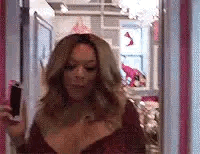
I DO IN FACT HAVE DRAMA RECS HII not all of these will be kdramas, but ill start with the kdramas ive watched and enjoyed and ill include all the warnings for them that i can remember off the top of my head and a brief synopsis for u!
kdramas-
1. weight lifting fairy kim bok joo
this was probably one of the first kdramas i saw people post about in like 2015 and i watched a little bit of it in 2016 but then only just got around to finishing it last year. the basic gist of it is its about a young sports college weight lifter, kim bok joo, centering around her navigating through her life and trying to figure out who she is and what she wants in life and what she wants to be. her romantic interest in the show is a swimmer and they have a sort of rivals to friends to lovers, he is SO in love with her and its adorable. i absolutely loved the side characters in this show theyre all so fun and kim bok joos best friends and weight lifting team are especially delightful. my main warning would be that this show addresses eating disorders and theres a lot of mention of both weight gain and weight loss, theres also a plot point early on where kim bok joo has a crush on her eventual love interests older brother but it gets resolved and the older brother literally goes "i didnt realize you had a crush on me and if i knew that i wouldnt have been so friendly with you, it would be completely innapropriate for us to be in a relationship". overall its a really sweet and emotional fun show but if you have issues with weight talk id skip this one
2. tale of the nine tailed
this one is really recent from last year and i didnt expect to be so hooked by it but boy howdy did i get attached to all the characters and the wild plot. it feels hard to explain the plot but basically a nine tailed fox named lee yeon is living in modern day seoul and is working for the underworld finding paranormal spirits/creatures/other rogue foxes that are causing havoc on the world, hes resigned himself to living this life while waiting for his girlfriend who died tragically 600 years ago to come back to life because he traded his status as a mountain god in order to ensure that her soul would one day be reincarnated. a plucky investigative journalist named nam ji ah figures out that hes not human and shenanagins ensue because she looks exactly like his dead girlfriend oooooo whatll happen. the plot beyond that gets really wild and its hard to explain and is easier to just watch. if u enjoy paranormal adventures this one is good. my one big complaint and issue with this is that the immortal mountain spirit meets his original girlfriend when shes a child and she continues to visit him off and on as she grows up which is Hm I Dont Like That! but thankfully the present time romance our female lead meets him when shes about 30 if im remembering right. also warnings for general fantasy violence, references to child abuse, animal death, and abandonment issues
3. extraordinary you
HUGE unreality warning for this. if you have issues with feeling unreal or have paranoia/delusions about not being a real person id avoid this one just because of its premise
ok i know i said tale of the nine tailed was a hard plot to explain but BOY extraordinary you is even HARDER to explain. because its so wild but so good. its about a girl who realizes that she is literally a side character in a comic book, and the story becomes her trying to change the story to save her character from dying but it becomes a lot more than that. the romance in this is literally tooth achingly sweet and the show itself is very pretty, i loved the side characters in this one and the show was engaging and interesting to watch it became really layered and meta. super reccomend this one honestly. my main issues/warnings that i can remember off the top of my head were just one character being the classic controlling boyfriend stereotype, bullying someone specifically for being poor, unreality like i mentioned before, and then at the very end there was this love interest for a side character who got reincarnated from a past piece of writing that they had been in and put in the comic but she was a student and he was the school cook which is weird but thankfully they like barely interact at all and theres no real romance he just like recognizes her and its barely a thing at the end of the show but its still weird
4. mystic pop up bar
big warning for suicide, sexual harrasment (which is framed as being bad and the guy whos harrassing the girl literally gets thrown off a roof)
i havent finished this one yet and thats mainly because im not emotionally ready because this one makes me soooo emotional. if you like found family this is a good one. its about a pop up bar run by a woman whos been tasked with solving the problems of a certain amount of people in order to atone for her crimes in the past before dying, shes able to enter the dreams of people and solve their issues using the information she gets in the dreams. paranormal shenanagins ensue, she acquires a son and a husband and it kills me its so fun and quirky and fun despite handling dark themes and peoples problems. also very sweet the found family murders me
5. kingdom (netflix original)
i literally am not going to be able to watch any other zombie media because kingdom and train to busan are the best pieces of zombie media ive ever seen. warnings for gore and violence and just general horror aspects.
i absolutely love this one its so thrilling and well done, i love the acting and the way that this show looks its absolutely gorgeous. a zombie plague breaks out in joseon period korea where the emperor has died and then was brought back to life by the queen and her father in a ploy to try and keep their family in political power, the crown prince must find answers. a lot more happens and its very dramatic and good i love the characters in this one
cdramas
1. the untamed. if you follow me and you havent watched the untamed im begging you to watch the untamed. literally one of the most beautiful stories ive experienced in my life i am not joking when i say i cried multiple times over it. the main characters are canonically gay in love and have a son together please watch the untamed. handles a lot of dark themes, heres a tw guide
2. the sleuth of the ming dynasty
this is another one i havent finished but its fun so far, very gay, found family, food, and solving murder mysteries during the ming dynasty
3. hikaru no go (also known as qi hun)
havent finished this one, there is some propaganda about hong kong in the first episode but as far as i know thats the only instance of something like that in the show
this ones about the game go and so far its very sweet and fun, local boy awakens a ghost who was a master of the game of go hundreds of years ago and eventually is persuaded to learn how to play go with the aid of the ghost. im really liking this one so far its very cute and i love the characters in it. if youve watched the untamed nie huaisangs actor ji li is in this one!
4. the legend of yunqian
this ones very short and on youtube, all the episodes are about 5 minutes long and its a lesbian time travel fantasy adventure with a happy ending! funny and cute
jdramas
1. cherry magic
please please please watch cherry magic. the premise sounds very much like a weird yaoi kind of thing but trust me on this. trust me. it is so heart warming and sweet and i was so emotional about it and the growth of the main character.
adachi gains the power to read peoples minds on his 30th birthday based off a urban legend that if youre a 30 year old virgin that youll become a wizard. after gaining this power he accidentally finds out that his extremely popular and handsome coworker has a crush on him, and shenanagins ensue along with adachi having blossoming feelings in return. this show was really refreshing in a lot of ways, adachi is a main character who like.. is unsure of himself and insecure in a very kind of realistic way, he closes himself off and is afraid to reach out to people and through the course of the show we see him slowly come out of his shell and realize that hes likeable and lovable and that people want to be around him and its so nice to see. my main complaint about this show is that i dont really like the background couple, but otherwise this is a very sweet and refreshing gay romance that has a happy ending!
some others that i myself havent seen but that ive seen people talk about a lot and that i want to watch eventually:
- the legend of fei (cdrama)
- the wolf (cdrama)
- gaurdian (cdrama, not the kdrama one called goblin)
- healer (kdrama, i did watch some of this one but it was in 2016 and i never finished it so i barely remember any of it but i do remember liking it)
- nobody knows (kdrama)
- its ok to not be ok (kdrama)
sorry this is so long but i hope youll be able to find a drama u enjoy!!
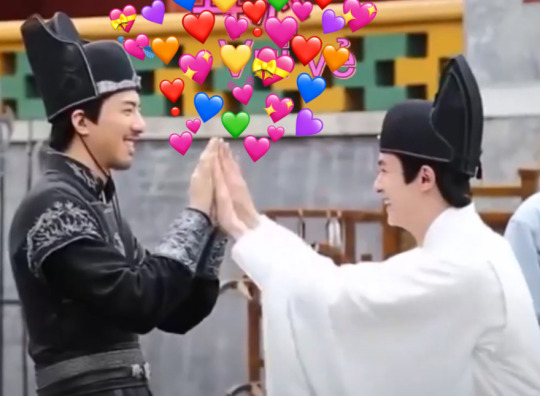
22 notes
·
View notes
Text
I just found this one-shot I wrote based on ‘betty’ that has been sitting in my notes since September. I thought I’d share, if anyone is interested in that. The characters belong to Taylor and her co-writers, of course. I just borrowed them for this fic.
‘Please, come over’
Jamie Mann stares at the text for far too long, watching those three little dots appear and, then, disappear once again. Betty hates sending more than one text in a row. Even more than that, she can't stand it when a message goes unanswered.
Still, Jamie can't quite think of what to say. Her mind flashes back to prom two weeks earlier and the boy who swayed Betty around the dance floor while she laughed at his stupid jokes. Betty told her that she isn't interested in boys, but damnit if she isn't very good at hiding that fact.
Jamie throws her phone down next to her on the bed and pulls the hood of her sweatshirt over her head. She fiddles with the strings of the sweatshirt until she hears the ding of a new message.
'I'm in front of your house. Get your ass out here and hop in.'
Jamie fights the smile on her face, but she can't help feeling a little less hurt in the moment. August was the kind of friend who could convince you to do things you would never even think to do. Like the time they hopped the fence at school on a Friday night to smoke in the softball dugout. Or the time August managed to sneak them into some gay club in the city. Or the time they almost ditched the cop trying to pull her over for running a red light. Okay, so maybe they weren't actually going to try to escape and maybe August's uncle happened to be the cop in question. But still...
Jamie grabs her backpack and puts it on as she heads down stairs.
"Where do you think you're going, young lady?"
"Mom, I literally just graduated high school last night and I turn 18 next month. I'm basically an adult."
Her mom pulls her into a hug. Jamie lets it happen for a few seconds before escaping her grasp. Mrs. Mann runs her fingers through her daughter's hair trying to fix it best she can.
"Hmm... that will have to do. Now, truthfully, where are you going? Yeah, yeah, I know you're all grown up now, but that doesn't mean I'm going to stop worrying about you."
Jamie rolls her eyes, but smiles nonetheless. "I'm staying over at August's. She's outside waiting for me, so can I go now?"
"Of course, dear. Have fun."
"Sure thing. Night, mom."
Jamie heads out the door and jogs to the midnight blue '67 Mustang idling in front of the driveway. She throws her backpack in the backseat before taking her spot in the passenger seat.
"So, what's the plan?"
"I was thinking we could go to that party Betty Davis is throwing."
A lump forms in Jamie's throat as she tries to come up with some excuse as to why they shouldn't go. August knows that Jamie is a lesbian, but she doesn't know anything about Betty. It was not something Betty wanted anyone to know about.
As far as anyone at school knew, Betty and Jamie were acquaintances at best. Betty was head cheerleader and Jamie was basically a skater burnout. Betty was class president and Jamie wasn't even on most of her teacher's radars. Betty was going to Yale next year. Jamie was going to a state school. Betty came from money. Jamie's mom worked two jobs to send her to private school. They weren’t exactly the likeliest of friends and no one would ever guess they were more than that.
"Come on, please? Don't you want to know what the popular kids get up to on the weekends?"
"Nah, it sounds pretty lame. I'd rather hang out just the two of us before you take your little road trip around the county, which I still can't believe your parents agreed to."
"You should come with me."
"What?"
"We would have so much fun. Besides I'm a little scared about driving around by myself."
Jamie scoffs, "You? Why, August Adams you are the bravest person I have ever known. What could possibly scare you?"
"I don't know... a car accident, rapists, serial killers, muggers, creatures..."
"Okay, I get it. I just mean... you've been planning this trip for two years. Wasn't it supposed to be some great big adventure of self-discovery?"
August shrugs. "I already know who I am. I'm a bisexual goddess, who is going to be the CEO of a major corporation someday, and no one can stop me. But also I'm just a girl sitting in front a girl, asking her to join me on the trip of a lifetime."
Jamie's heart skips a beat. She loves Betty so deeply, but being with her was torture. It would have been four more years of hiding. 'Just until we graduate college,’ Betty's words echo in her head. Four years is a long time and Jamie is sick of hiding. August came out Sophomore year and didn't care about what anyone thought of her.
"You know what, that sounds amazing."
August squeals and leans across the center console to wrap her arms around Jamie. "We're going to have so much fun, James!"
They never went to Betty’s party. Instead they drove to 7-Eleven, bought snacks and slurpees, and spent the rest of the night at the one skate park in town.
It took a bit of convincing before her mom felt comfortable letting her go on the five week trip. The fact that August had family sprinkled along their route, with whom they would be staying most of the time, helped to reassure her. August created an itinerary for Jamie's mom, so she would have an idea of where they would be and with whom.
A week into the trip, Jamie gets an unexpected text.
'I heard you left town with August Adams. Thanks for the heads up. Hope you have fun.'
The three dots show up and disappear, then reappear once again.
And finally, after almost a minute, 'I hear she's a great lay.'
Jamie doesn't even reply. Her blood boils just a bit. They'd never officially broken things off, but seeing Betty kiss that boy on the dance floor was the last straw. Jamie didn't want to hide anymore. She wanted a girlfriend who's hand she could hold while walking down the street.
So, she got one. Sort of. The text kind of sent her into overdrive and she may have decided to see if all the rumors about August were true. They were. She definitely knew what she was doing and it was nice, but it wasn't the same as it had been with Betty. It was lust. There was no romance in it. At least not on Jamie's part.
Unfortunately, she had no idea the other girl had wanted this since they were Freshmen. It killed Jamie to tell her the truth. August was beautiful and fun and clever, but Jamie's heart belonged to someone else. She confessed everything about her relationship with Betty and how she wished she had gone to that party the night after graduation.
August won't tell anyone. She might be hurt, but she wasn't heartless. She'd never out someone nor would she ever try to get back at Jamie. They did decide to give each other some space. In fact, they only met up once more that summer. It was the day before August was set to leave for school. They hugged awkwardly and promised to keep in touch and to hang out over Thanksgiving break. They didn't keep those promises.
Betty doesn't message her again. Jamie rides past the girl's house on her skateboard almost every day for a month before she finally gets the nerve to text her.
'Hey, I'm near your house. Can we talk?'
She sits on the curb across the street from Betty's house for an embarrassingly long amount of time before she finally gives up. She stops riding by her house.
It's not until her mom drags her to the mall insisting she needs a new wardrobe for college that she finally sees Betty again. She catches sights of the girl from the store across the way and she tells her mom she'll be right back. She's about to step into the store, but someone grabs her by the wrist and drags her towards an empty service hallway. Jamie's heart stutters until she realizes who exactly has a hold on her.
"What the hell, Inez?"
Inez roughly releases her grasps once they are out of the earshot of passersby.
"What do you think you're doing?"
"Me?! What do you think you're doing."
Inez rolls her eyes. "Stay away from her, you freak!"
"What gives you the right to tell me what to do?"
"I don't know. Maybe the fact that Betty told me all about how you're desperately in love with her and tried to put the moves on her and that's why she had to switch homerooms. Which I said was weird because as far as I knew you were off playing Thelma and Louise with August Adams. So just, like, leave her alone. She's not... like you."
Jamie bites her tongue. There is so much she wants to say, but it would only make things worse. "Whatever. Maybe you should tell your friend not to flatter herself."
Occasionally, over the next few years, Jamie checks Betty's social media accounts, looking for any hint that one of the girls in her pictures were more than just a friend. Jamie thinks about the night after high school graduation often. She fantasizes about what would have happened if she had gone to Betty's party. Would the girl have finally kissed her in front of their classmates? Was she already drunk when she sent that message? Had she finally been ready to say 'fuck it all' and let everyone know she wasn't who they thought she was?
Jamie will probably never know. But she spends her college years chasing the feeling she had when she was with Betty. There were a couple of women who she thought she had been in love with. Maybe she had been, but there was always this one piece of her heart that hung on to past love.
She dates quite a bit the first couple of years after college, until she eventually gets into a committed relationship. It's great for a while. It lasts four and a half years. She's devastated when it ends. But also, a part of her is relieved. It doesn't really make sense until that next Thanksgiving weekend when her high school class is having its ten year reunion.
She contemplates not going, but she's already R.S.V.P.'d and she's already going to be in town to celebrate Thanksgiving with her family. So, she musters up the courage to go.
The first person she recognizes is August Adams. The other woman greets her with a tight hug.
"James! How are you? God, it's been too long."
"It has."
It really has. Jamie missed her friend. She screwed it all up so much back when they were kids. But the woman still had this brightness that radiated from her and Jamie let herself bask in it.
"Oh, you have to meet my wife," August wraps her arm around the waist of a gorgeous brunette, "This is Autumn. I know, I know. Don't even start."
Jamie chuckles, but keeps quiet. After catching up and seeing way too many pictures of August's kid (she was a proud mom and it was kind of cute, to be honest), Jamie was left alone when the other woman found another old friend to talk to. She didn't mind. It gave her a chance to finally get to the bar and get a drink.
Jamie orders a whiskey on the rocks.
"I'll take one of those too, please," a voice speaks from beside her.
Jamie turns her head and takes in the sight before her. Betty hasn't changed much. If anything, she's even more attractive than she was all those years ago.
"Hi."
"Uhh..." Jamie clears her throat, "Hey."
Betty bites her lower lip, a smirk forming on her face anyway. "You look..." Her eyes scan Jamie's body and Jamie shifts a bit under her gaze, "good."
"That's all." Jamie elbows her playfully. The bartender sets their drinks in front of them. Jamie lifts the glass to her mouth.
"Let me try that again. You look incredible in that suit, but all I can think about is what you'd look like out of it."
Jamie chokes on her drink, pounding her chest with her fist as she coughs. Betty quirks her eyebrows and smirks smugly, while Jamie tries to gain some sense of control over her own body again.
"Umm... wow, that... I wouldn't mind..."
"Are you here with anyone?"
"No. I'm actually single at the moment. You?"
Betty doesn't even bother to answer. Instead she kisses Jamie. It takes a moment for Jamie to register what is happening, but eventually she gets a hold of herself and reciprocates the kiss, matching the passion of the woman in front of her.
There are a couple of 'whoops' from former classmates and a 'Get it, Davis' before Betty pulls away.
"Do you want to get out of here?"
How could Jamie say no to that? After that kiss? After ten years of dreaming about this moment? She couldn't.
"Definitely."
'Out of here' isn't very far. It's actually a room at the hotel where the reunion was being hosted, but really it was better than Jamie could have ever dreamed.
As they lay together in the afterglow, Betty runs her fingers through Jamie's curly, golden locks. Jamie rests her head on Betty's chest, her fingers tracing random patterns across Betty's toned abs.
"You're still as fit as you were back then."
Betty buries her face in Jamie's hair. Jamie feels the laughter rumble through the other woman's chest at the comment. "Really? Those are your first words after everything?"
"I can't help it, when you look like this."
"You're not so bad yourself."
Jamie looks up at Betty incredulously, "I'm sexy as hell."
"Hmm... I mean, you're attractive, sure. 'Sexy as hell', may be a touch too far."
"Oh, yeah?" Jamie smiles up at her as she moves her hand down Betty's abdomen. "Let me show you a touch too far."
Being with Betty makes Jamie feel like she's 17 again. All the years away from the girl did nothing to quell her desire to be as close to her as humanly possible. Somehow it was like a part of Jamie's heart had finally found its place again. It was a part that she thought had long been lost and she had resigned herself to the fact that the puzzle would sit there in her chest missing that one piece forever.
Maybe she didn't know much back when they were kids, but she knew one thing that would always ring true: Betty Davis is, has always been, and will always be her person.
2 notes
·
View notes
Text
Adult Onset, Ann-Marie MacDonald
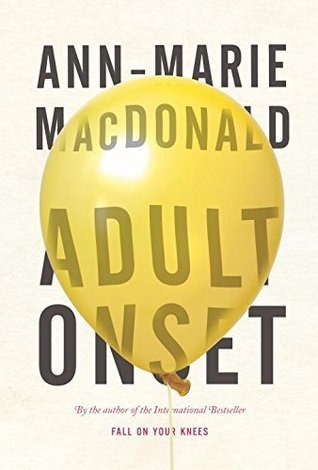
Rating: Great Read Genre: Realism, Literary Representation: -Lesbian protagonist -Lebanese protagonist -Protagonist with anxiety/panic disorder Trigger warnings: Infant death, Stillbirth (explicit), Child abuse, Child sexual abuse (not in scene), Homophobia, Misogyny, Biphobia, Animal death, Internalized racism, Reclaimed D-slur
Note: Not YA; somewhat sexual but not explicit
Transitioning into reading more adult fiction than YA in your early twenties is often unpleasant. Disturbing topics make a happy home in adult fiction, and they don’t always announce themselves in the book jacket. (Adult Onset’s book jacket even describes the novel as “hilarious” - a fact which is hilarious in itself. Are adults okay?) The disturbing topics aren’t bad in and of themselves. Adult readers of these difficult literary novels can sometimes resonate with the battle between ugliness and meaning, finding catharsis in the trenches. Some readers may even find an unpolished aspect of themselves reflected in the novel, their relationship to the book becoming a form of literary therapy. The books that save lives are rarely the easiest reads. By the same token, undertaking a difficult literary novel can put a bitter taste in your mouth. Sometimes that moment of catharsis isn’t worth the taste.
I found myself waffling over my opinion about Adult Onset. On the one hand, it’s about the generational gift of abuse from mother to daughter, and the ugliness of that abuse is not safely contained within a “bad guy” the reader can despise, but in sympathetic characters. It’s an uncomfortable book with a subject matter that isn’t going to appeal to the escapist reader, that’s for sure. On the other hand, as we get older, many of us develop more tolerance for morally gray characters as we discover that we are morally gray ourselves; it can even be refreshing to read about someone with our same flaws - flaws bad enough we might hesitate to speak about them - treated not as evil, but human. Reading Adult Onset, I felt myself straddling that line. Yes, Adult Onset was an uncomfortable, unhappy read. But at the same time, I saw glimpses of myself in the main character’s serious anger and anxiety. While I’m not a mother in my mid-forties struggling to manage a suburban household, anyone who has had to grapple with mental illness or abuse will feel kinship to Mary Rose.
Adult Onset is one of those books that can’t be measured by plot. The narrative is urged forward by the compulsion of symmetry, not linear time, and so the story takes a beautiful, mirrored shape, rather than the parabola of a plot arc. The central character, who is the line across which the shape of the story is reflected, is Mary Rose (“Mister” for short), a lesbian mother of two who used to write YA novels, but who has since traded roles with her wife in favor of home-making, giving her wife a chance to follow her career as a theater director. Mary Rose has untreated anxiety that causes her to catastrophize everything in her life. She has untreated anger that causes her to yell and throw things in front of her kids. She is kind of a dick, to use the most accurate term, which causes her to ask her wife, ���If she got the flowers?” when Mary Rose never sent any flowers (but feels like she might be in trouble if she doesn’t make some claim at a redeeming quality). Mary Rose is also the heir to two generations of abuse. Her maternal grandfather married a twelve year old child. Her mother hit her and her brother (her elder sister had a different experience). Both parents rejected her in the most severe way when she came out as a lesbian in her twenties. She has chronic pain from childhood bone cysts, a pain which leads her down the rabbit hole of memory as she tries to find some closure on a childhood that her aging parents don’t fully remember anymore.
Adult Onset is a good book. It’s a beautiful piece of art. The structure of the novel is inspired, leaving one more than satisfied with the symmetrical beauty of it all. The narrative about Mary Rose is inter-cut with glimpses from Mary Rose’s mother’s perspective, showing the reader not an old woman with memory loss, but the young mother struggling with postpartum depression she once was. We also receive the perspective of the main character from Mary Rose’s popular YA book series, a young girl whose magical adventures were unwittingly inspired by Mary Rose’s trauma. These snapshots of other points of view are unannounced, and even confusing at first - but therein lies their value. Mary Rose’s identity bleeds into her mother and her main character, and the structure of the novel itself illustrates that.
Adult Onset is a good book. It takes Mary Rose’s flaws, holds them before the reader, and says: motherhood is not easy, and you’re not a bad person for floundering. It explores where the line is, that makes a person irredeemable. Mary Rose almost hits her toddler, and she thinks with horror - what if there is an alternate universe where she really did? She thinks about her own life in those terms, considering that while she is the Mary Rose who was abused by her parents, perhaps there is an alternate Mary Rose who wasn’t. She loves and defends her parents as if they didn’t pass her trauma down to her, as if she were the lucky Mary Rose - yet she still contends with the unhappy result. She asks herself: if her parents don’t even remember her childhood anymore, are they still the parents who did and said the things that hurt her?
Adult Onset is a good book, but it is also a book that very artfully dances around a concerning issue with its theme. Herein lies the problem: Adult Onset gives itself an almost impossible task, that of fixing Mary Rose’s unhappy life into a somewhat happy ending. Mary Rose almost hit her toddler, her marriage is on the rocks because she keeps yelling at her wife, and she refuses therapy to the bitter end. The reader won’t be satisfied with the realism of the book if Mary Rose changes too much for the better, nor will the reader be satisfied with an unhappy ending. In the end, Mary Rose doesn’t really change, so much as realize she can ask for help. She asks a friend to come over and stay with her for a couple of days while her wife is out of town, and she has an all-day play-date with a mom from her son’s preschool - a mom who Mary Rose has always believed is perfect, but who whispers to Mary Rose, “You saved my life today.” Mary Rose could have said the same thing, a fun little turn of the tables with the positive message that there is no perfect mother. Women suffer far too much unaddressed misery, desperation, and shame (with dire consequences), but there is solace and reprieve in one another’s support. This one play-date, and the lesson therein, is the cathartic moment of the novel.
Yet one play-date carries a heavy burden, if it is to be the cathartic moment of a novel about abuse, infant mortality, anger, anxiety, lesbianism, and motherhood. On reflection, a reader might be more horrified than satisfied, that a play-date is the only help Mary Rose is to receive. Perhaps MacDonald would agree, because after this play-date from heaven, Mary Rose’s life magically falls into place in all sorts of ways. She’s the mom who has it together now, offering organic pretzels to the lesser mothers who forgot to pack a snack for the park. She even makes peace with a memory of her father’s homophobia, satisfied by how far he’s come in the twenty years since. Her wife, who hasn’t wanted sex over the course of the novel, suddenly changes her mind when she finds some lingerie that Mary Rose bought for herself (even though she didn’t even really want it). Mary Rose’s experience of gender is what some readers might call dysphoric, but Mary Rose herself calls “internalized misogyny.” She feels like it’s wrong of her to be uncomfortable with womanhood, so when her wife tells Mary Rose to wear the lingerie to bed, reminding her with exasperation that “I’m attracted to women,” Mary Rose falls in line. What a tidy ending! Motherhood? Resolved. Relationship with parents? Resolved. Sex life? Resolved. Complicated lifelong relationship to gender? Resolved.
This was the real key to my discomfort with the ending of the novel. The message seems to be: if you’re about to self-destruct (taking your children down with you)... just get with the program. At your breaking point? Just ask your friend to come over with spaghetti. Just set up a play-date. Just perform motherhood better. Just perform womanhood better. How sad is it, that this was all the book could give Mary Rose? If the theme of your novel is also the Nike slogan, it’s not as radical an outlook on life as one might think.
The weak ending aside, there are only a few such cracks in the perfect veneer of Adult Onset. The Gen X humor is off-putting (What’s up with Facebook, ladies, am I right?), and Mary Rose obnoxiously discredits her wife’s bisexuality, saying “She refuses to call herself a lesbian.” She still uses the word “transgendered,” too, which even word processors auto-correct these days. And yet, for all its flaws, Adult Onset is a good book. If you have anger and have ever been a hair's breadth away from hitting a child in your care - and let’s face it, this is the unspoken shame for many, many mothers - it’s a book that will make you feel seen, and understood. The mothers that have hit their children in a moment - or months, or years - of weakness are seen too, in Mary Rose’s mother, who is neither torn down nor excused, but simply put to the page.
Adult Onset is a good book, yes, but do I recommend it? Not to everyone. It’s a frustrating book. It covers topics that may be triggering. It’s a book that can, and probably will, ruin your day (Gen X humor just isn’t enough to cut the despair, folks). On the other hand, it offers an underlying message that not every book can give you: Even if you didn’t solve the problem, even if you’re just barely hanging on by a toxic “Just do it!” attitude, there is grace for you.
For more from Ann-Marie MacDonald, visit her website here.
#adult onset#ann-marie macdonald#great read#lesbian#protagonist of color#literary#realism#reviews only#not ya#mentally ill protagonist
2 notes
·
View notes
Text
Top 30 Films of 2018
I’m actually getting one of these out at a fairly reasonable time! I’m a champion.
Compared to last year, I would say 2018 had fewer films that I really loved, that shook me and immediately registered as important - but also, more films that have grown on me over time, that were clever and inventive in ways that convince me to look past their shortcomings (or reevaluate if they are shortcomings at all). Plenty of odd, perhaps imperfect movies made it far up the list, and I think I ended up privileging that weird streak more than usual this year. But hopefully that makes for interesting reading here.
I found making this list that a couple of the big arthousey hits of the year (Eighth Grade, Burning, The Rider, and others) ended up slipping into the basement of the top 50. Keep an eye out for a rejoinder post following this in a couple days where I hash out my thoughts on those. For now, top 30 after the jump:
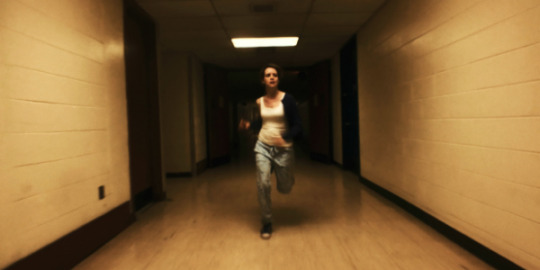
30. Unsane dir. Steven Soderbergh
Remember when Tangerine came out and everyone was like, “wow I can’t believe this was shot on an iPhone” and it was a whole thing? Well, I can believe that Unsane was shot on an iPhone, and that’s really for the better. Ever the innovator, Soderbergh follows Sean Baker’s lead by taking full advantage of the logistical advantages and distinctive appearances of iPhone-shot footage, putting together a film that uses its hardware not as a flashy obstacle to be overcome but as a driver of its look and feel, proving at least for now that mobile-shot films are viable (though we’ll see how his next one turns out). The film itself is good too - Claire Foy gives a wonderfully prickly performance, and the claustrophobic visuals make for a great psychological thriller.
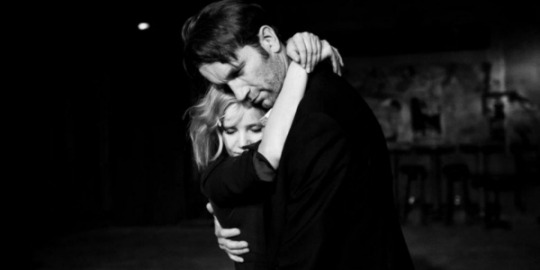
29. Cold War dir. Paweł Pawlikowski
Expanding on the aesthetic territory he explored with Ida, Pawlikowski brings another black & white, Polish-language period piece about identities split between different (religious, political) worlds. Cold War is the more complicated and perhaps less focused film, but also the more alluring one, with a luscious love story, incredible music (Łojojoj...), and great, showy performances from Joanna Kulig and Tomasz Kot. In other words, it’s luxurious, romantic Euro-arthouse fare. Probably best watched with a full glass of wine in hand.
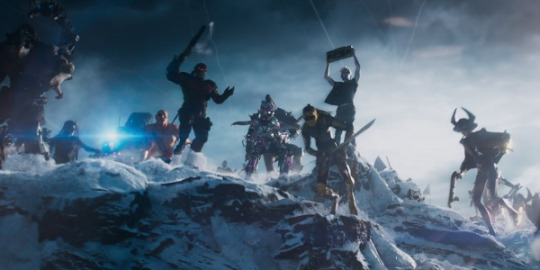
28. Ready Player One dir. Steven Spielberg
A film that many accused of “pandering” to audiences for its many blink-and-you’ll-miss-it nods to 80s nostalgia and gaming culture, Ready Player One was on the contrary seemingly uninterested in anything of the sort. It managed to accomplish something more meaningful by packing the film so dense with nerd-bait that it becomes just texture and noise - Tracer popping up in the background of random scenes ends up being less of Overwatch reference and more of a piece of plausible set dressing in a VR social media hub. This contributed to RPO being not only a technically impressive but a visually overwhelming effects film, packaged around a seemingly knowing 80s blockbuster pastiche (the story, the character types, even the music cues were too old-fashioned to be on purpose). A film both smarter and easier to like than the discourse around it suggested.
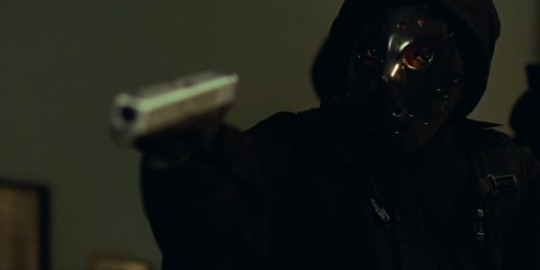
27. Widows dir. Steve McQueen
I do really wish that McQueen would go back to making demanding, brutal films like Hunger, but if he simply has to become a commercial filmmaker I guess I don’t mind this. Surely the ensemble film of the year, with the entire cast firing on all cylinders - Daniel Kaluuya as the sadistic enforcer/campaign manager in particular impresses, though naturally Viola Davis, Elizabeth Debicki, Cynthia Erivo, and even Colin Farrell make for compelling characters in this twisty, nervy heist film. The action scenes are all impressively mounted (if a bit few and far between) and there are enough McQueen-esque florishes to keep things interesting in the interim (that long car scene!). Great moody popcorn stuff.
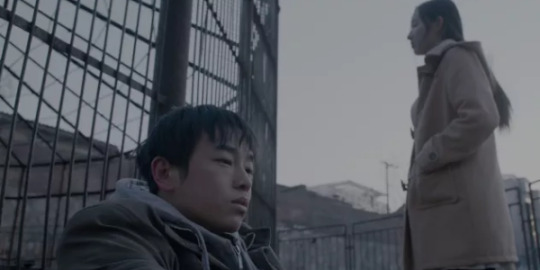
26. An Elephant Sitting Still dir. Hu Bo
Elephant has gotten a lot of press for two reasons: its nearly four-hour length and its director’s untimely death shortly after its completion. The length is important because it beats you into submission, forcing you to accept its rhythm and smothering you in tight focus on its main characters until you feel like it’s your own POV (I wasn’t really into it until, uh, the two hour mark, but then somehow I was hooked). Hu Bo’s death is important because knowing that, the sensation of being trapped, pressured, and disoriented by the Current State of China (ever the popular subject matter) feels all the more palpable and, maybe unfortunately, grants the film some extra layer of authority, or at least urgency. If I ever have the time or energy, I would love to revisit this film - I expect it will one day be seen as a landmark.
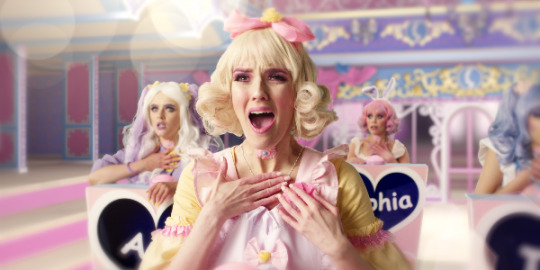
25. Make Me Up dir. Rachel Maclean
A bizarre little bit of sugary pop-feminist techno-dystopia, pulling off a sort of cinematic cousin to vaporwave by way of Eve Ensler. What unfolds is pretty insane, involving dance numbers, incomprehensible lectures on dodgy gender politics, and sets that look pulled out from a cheap children’s TV show. It’s definitely a marmite film - how well you connect with this will depend heavily on your tolerance for clearly-fake CG, well-trodden feminist talking points, and pastels - but for those with the appetite for this brand of political kitsch then this is just about the best version of itself imaginable.
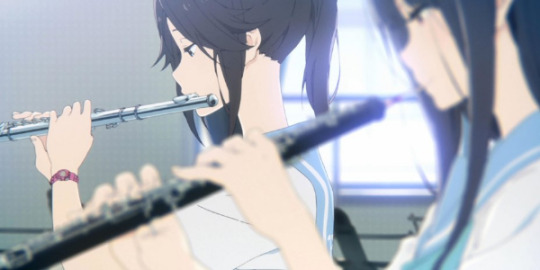
24. Liz and the Blue Bird dir. Naoko Yamada
Naoko Yamada out Naoko Yamada-s herself. A standalone spinoff of Hibike! Euphonium that focuses on members of the secondary cast, Liz makes good on the sensitive, subtly-executed love story that the show ultimately failed to produce (not quite Adolescence of Utena-tier course correction, but we’ll take it). This is a film propelled by the tiniest gestures - a hand tensing behind the back, a nervous flicker of the eye, a cheerful bounce in the step - in that way animation can provide that seems not incidental but hugely, blatantly filled with meaning. While A Silent Voice was a great breakthrough for Yamada as an “original” feature, it’s Liz that feels like the more mature film, and a promising indicator for what lies ahead.
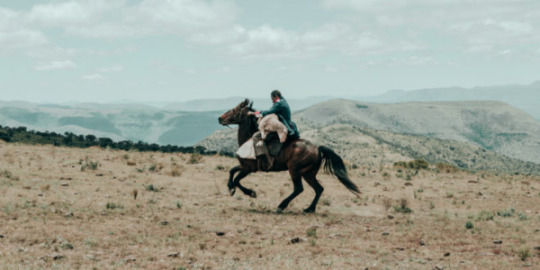
23. Sew the Winter to My Skin dir. Jahmil X.T. Qubeka
Maybe the most surprising film of the year is this, an action-biopic about John Kepe, a South African Robin Hood figure, that almost entirely eschews spoken dialogue in favor of visual storytelling, physical acting, and clever audio design. But this is not some pretentious, austere arthouse film substituting gimmicks for actual character; Sew the Winter to My Skin is an engaging, fascinating, and unexpectedly accessible historical epic, prioritizing mythic bigness over simple recitation of fact. While it demands some patience at first (with no dialogue, it takes a bit for the film to properly introduce its cast), it quickly shows itself to be an inventive, exciting, and occasionally funny adventure that proves Qubeka as a truly exciting voice in South African cinema.
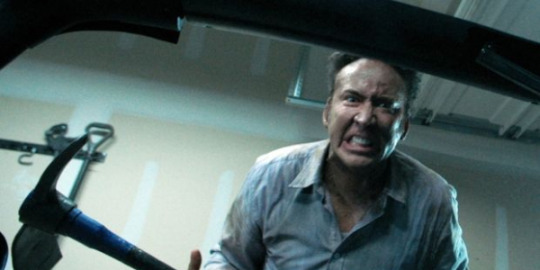
22. Mom and Dad dir. Brian Taylor
Forget Mandy, THIS is the crazy Nic Cage movie of the year. A slick, rapid-fire horror comedy that feels almost like a music video at points, Mom and Dad has what’s surely Cage’s best unhinged performance in years as well as a great, more restrained turn by Selma Blair. The violence is ludicrous, the premise is nutty, and the sense of humor is utterly sick - that the film manages to squeeze out a surprisingly coherent commentary on suburban family life on top of this is a minor miracle (a scene where Cage destroys a pool table proves strangely thoughtful). For all the broadly acclaimed “serious” horror films in recent years, like this year’s kind of boring Hereditary, groan-filled A Quiet Place, and mostly incoherent Suspiria, I more appreciate this breed of deranged, funny, and tightly focused effort. It doesn’t need to be that deep.
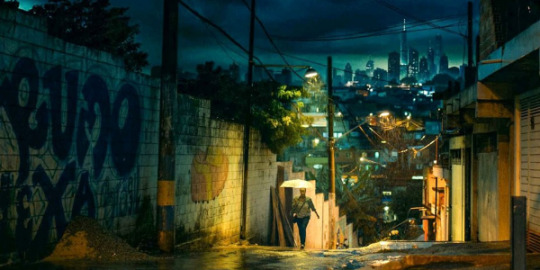
21. Good Manners dir. Marco Dutra, Juliana Rojas
I’m going to mark this write-up with a **spoiler warning**, as I think it’s basically impossible to talk about this film without giving the game away. Good Manners has one of the best genre switcheroos in recent years, starting off as a proper Brazilian class drama (think Kleber Mendonça Filho) with a lesbian twist before explosively transforming into a horror movie that reveals a hidden monster-coming-of-age story that’s nearly unrecognizable as the same film from an hour before. As delightful as this bit of narrative sleight of hand is, it can’t justify a good film alone, which is where the great lead performance by Isabél Zuaa and the mesermizing, inventive matte paintings of the São Paulo skyline come into play, making this fantastical, genre-bending film a true original of the year.
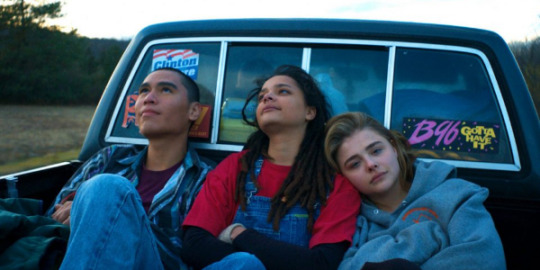
20. The Miseducation of Cameron Post dir. Desiree Akhavan
There’s a tendency in the queer teen film genre to sometimes drift towards miserablist portrayals of growing up; to emphasize the hardship, nonunderstanding, and isolation to the expense of other experiences. Cameron Post manages to avoid this path even as it explores the dreadful premise of life in a conversion camp by balancing the solidarity, humor, and defiant joy hidden along the edges of the camp experience with the cruel, dehumanizing nature of the place. The film works, then, not only as a statement against conversion therapy and the real harm it does to all participants, but also as a lively, triumphant teen movie that feels more powerful than the lazy, doom-and-gloom approach.
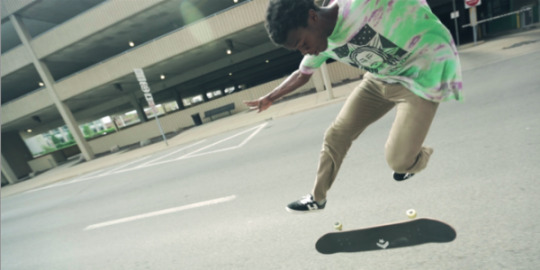
19. Minding the Gap dir. Bing Liu
Few films capture the particular small city Midwest atmosphere quite like this one, a very raw documentary that feels very much like the first feature it is - but in a good way. Cut together from years of Liu’s amateur footage as well as new material of its subjects (the director and two of his old friends), a documentary that at first seems to be about the local skateboarding culture stretches out to many other topics: domestic violence, race relations, middle-American economic anxiety. The film, perhaps because of its closeness to the director and his relative inexperience, manages to take on a quick-moving scattershot approach, weaving stream-of-consciousness from one topic to the next, while still giving each the time and weight it deserves.
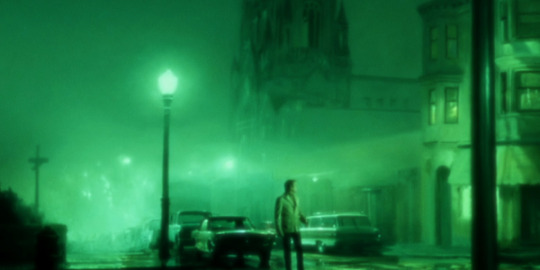
18. The Green Fog dir. Evan Johnson, Galen Johnson, Guy Maddin
A hard film to sum up, though at its heart not a terribly complicated one. Ostensibly a very loose reconstruction of Vertigo using clips from other material shot in San Francisco, from The Conversation to San Andreas to Murder, She Wrote, this new, uh, thing from Maddin and the Johnsons is a short, sweet, and really quite funny collage less interested in slavishly reenacting its inspiration than making funny jokes with movie clips. Some highlights include Rock Hudson carefully watching an *NSYNC music video on a tiny screen, a long sequence admiring Chuck Norris’ face that doesn’t seem to match any particular part of Vertigo, and a number of scenes of dialogue with all the speech cut out, leaving only awkward pauses and mouth noises. It’s high art!
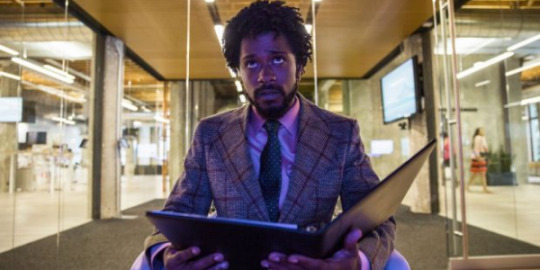
17. Sorry to Bother You dir. Boots Riley
Boots Riley’s transition from long-standing underrated rapper to breakout auteur has been wild to witness. Sorry to Bother You is certainly one of 2018′s most original and distinctive films (what other film is it like, exactly?), and any complaints about unsubtle politics or overpacked narrative can be easily counterbalanced with the film’s sheer verve and oddball energy. Like Widows, it’s another of the great ensemble pieces of the year - Lakeith Stanfield and Tess Thompson are great as usual, and of the supporting cast Armie Hammer emerges as the standout with an incredibly funny halfway-villainous turn, plus a great bit of voice casting with David Cross. Leading candidate for this year’s Film of the Moment.
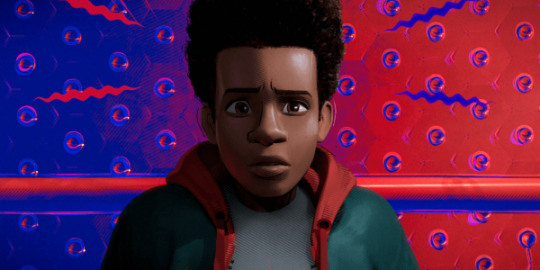
16. Spider-Man: Into the Spider-Verse dir. Robert Persichetti Jr., Peter Ramsey, Rodney Rothman
The problem with comic book movies a lot of the time is that they’re somehow too embarrassed to own their source material. Into the Spider-Verse succeeds because it emphatically embraces its roots, not only visually (the cel shading, impact lines, and even text boxes that make up the film’s look) but also narratively, by adopting the multiverse concept in earnest and milking it for comedic and dramatic effect. It’s an incredibly innovative (not to mention gorgeous) animated film that not only raises the standard but expands the scope of superhero films, giving new hope to a genre that has been stuck spinning its wheels for years. Plus, it has probably the only post-credits scene actually worth the effort, which is a very special sort of victory.

15. Museo dir. Alonso Ruizpalacios
A playful, thoughtful heist film that gets the actual heist out of the way as soon as possible. Two suburban twenty-somethings pull off a daring robbery of Mayan artifacts from the National Museum of Anthropology in Mexico City, then set off on an ill-fated roadtrip to fence the goods. There’s a certain magic to this film, in its approach that is at once totally reverent and mythologizing but also eager to take the piss out of everything (the recurring motif of Revueltas’ The Night of the Mayas suite does both), and in how it turns this story into something of a love letter to the history and geography of Mexico. Very mature, well-balanced filmmaking in Ruizpalacios’ second feature.
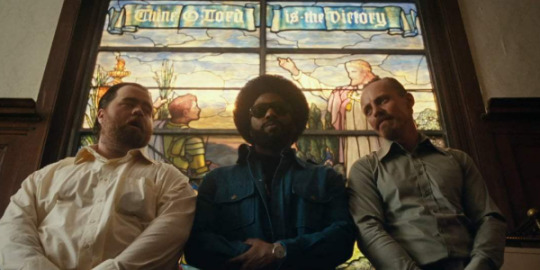
14. BlacKkKlansman dir. Spike Lee
The best Spike Lee joint in a long, long time. It taps into the freewheeling, confrontational energy of his best work, but almost as a career victory lap as he makes a game out of outfoxing Klan members. There’s plenty of humor and tension here, with a great, dry leading duo in John David Washington and Adam Driver, and a funny turn from Topher Grace (!) as David Duke. Even if it does play it a bit safe with an easy target and wraps up a bit too easily (a quick flash-forward to Charlottesville as a postscript notwithstanding), it should be fine, I think, for a film to indulge in the simple pleasure of overcoming obvious villains in a glorious fashion. For all the recent films that give nuanced and serious takes on racism in America, one ought to be about the joy of blowing up the KKK.
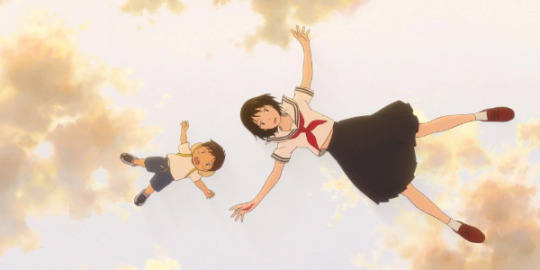
13. Mirai dir. Mamoru Hosoda
Since he’s started making original features, Hosoda has been taken with relatively high-concept storylines, from his “debut” The Girl Who Leapt Through Time to Wolf Children, but Mirai is certainly his most ambitious yet. Nearly every choice about the film is a bit weird: from the unusual, compact layout of Kun’s home to Kun’s very believable, nearly alienating (to an older audience) childish behavior to the simply bizarre logistics and metaphysics of Kun’s fantastic adventures. The time- and space-travel antics Kun and Mirai get up to never seem entirely literal or entirely imagined, somewhere between childish fable and psychological sci-fi, a mixture that culminates in a surprisingly existential climax for an unabashed children’s film. After the quite safe The Boy and the Beast, it’s exciting to see Hosoda branch out into such a complicated and strange project, certainly the most daring animated feature of the year.
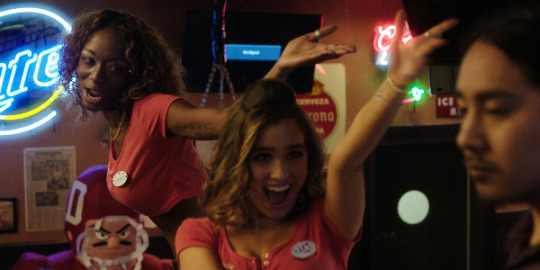
12. Support the Girls dir. Andrew Bujalski
A bubbly, sensitive, and lightly anarchic workplace comedy in that most essential of American institutions: the Hooters-flavored sports bar off the highway. Bujalski continues to prove himself an observant and funny writer, putting together a fascinating ensemble of characters brought to life by a perfectly-cast ensemble (Regina Hall is flawless as advertised, and Haley Lu Richardson brings us one of the most adorable characters in cinema). I don’t think I’ve seen a more charming film about workers’ solidarity and the lively communities that find their niche in liminal spaces.
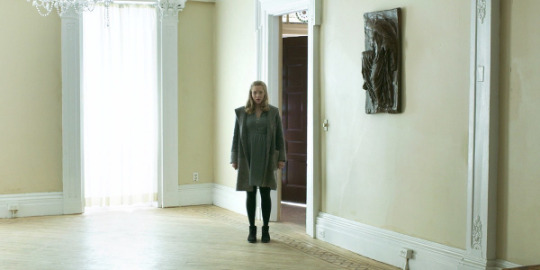
11. First Reformed dir. Paul Schrader
Edgy priests are in a certain way low-hanging fruit; the tension is automatic, the contradiction inherently compelling. It’s a lazy symbol that can be milked for cheap profundity when employed, if you will, in bad faith. That’s why it’s so important that First Reformed, for all of its alcoholic, violent, libidinous angst packed into Ethan Hawke’s (masterfully interpreted) character, is also a great, genuine film about faith besides. It’s a Revelations film if I’ve ever seen one, about facing down the apocalypse with no way of understanding God’s plan, about living on the precipice of a collapse of belief, about accepting mystery. It’s the only film I saw this year that communicated actual dread, but even then still, somehow, bizarrely hopeful.
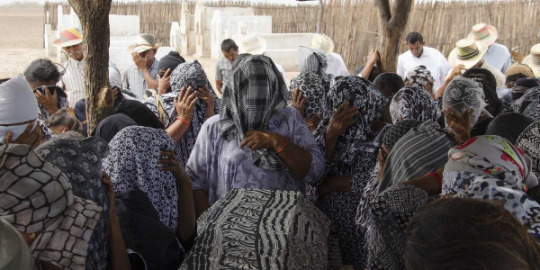
10. Birds of Passage dir. Cristina Gallego, Ciro Guerra
Ciro Guerra (now with partner Cristina Gallego co-directing) follows up the excellent Embrace of the Serpent with another powerful portrait of an indigenous community that, under the pressure of colonial influence, gradually devours itself. In the new film, however, this takes the form of a traditional gangster film, from the humble beginnings and runaway success to the explosions of violence and crumbling of an empire. Birds of Passage shows the origins of the Colombian drug trade with the native Wayuu people (a counterpoint, Gallego explains, to the much-celebrated Pablo Escobar narrative), and in doing so still finds room to organically and respectfully depict the traditions of the Wayuu, as well as showcase their beautiful language, which makes up much of the film’s dialogue. Best film in the genre since at least Carlos.
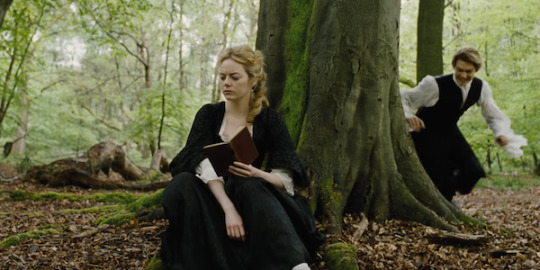
09. The Favourite dir. Yorgos Lanthimos
Though I really admire Dogtooth, I’ve found myself increasingly disappointed in Lanthimos’ output since that film. Alps was fine but clearly minor; The Lobster started strong but fizzled out; Killing of a Sacred Deer was ultimately too self-consciously bizarre. With The Favourite, we’re finally back in exciting, unsettlingly weird territory, Yorgos having found that his very mannered style of English dialogue works superbly in a costume drama context. He also gets great, uncharacteristically emotive performances (compared to, say, the last two Colin Farrell outings) out of his central trio of Olivia Colman, Rachel Weisz, and Emma Stone, with especially great work coming from Stone, who I think has discovered that all of her best roles take full advantage of the fact that she looks like a cartoon character. It’s wonderfully perverse, incredibly funny stuff, with one of the great, inexplicable endings of the year - fair to call it a Buñuel revival.
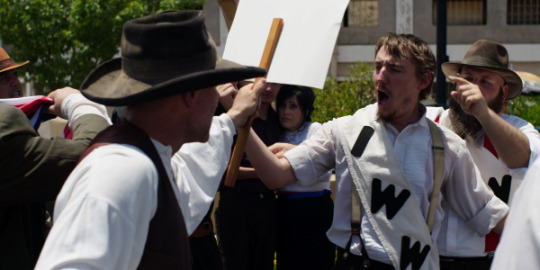
08. Bisbee ‘17 dir. Robert Greene
A documentary that tackles a shocking forgotten chapter in American labor history - a group of strikers deported from their mining town and left for dead in the desert - as well as the potential of historical reenactment to act as communal therapy. Greene moves a bit sideways from his usual performance-centric subject matter to show a different kind of performance meant not to affect the audience but the performers themselves, breaking through decades of near-silence on Bisbee’s tumultuous small town history. It’s also a remarkably multi-faceted film; though it would certainly be easy to side fully with the strikers, Greene makes sure to document the perspectives of current Bisbee citizens who sympathize with or even celebrate the decision to deport, complicating the emotions and politics of the reenactment in genuinely interesting ways. A powerful, important documentary.
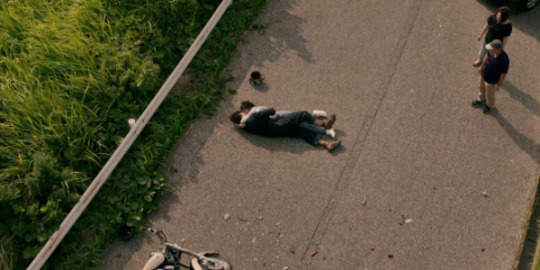
07. Asako I & II dir. Ryusuke Hamaguchi
Unwieldy and annoying English title aside (especially considering all the possible translations of Netemo Sametemo), Asako seems on the surface like nothing more than a cheap TV romance. It hits many of the same beats and adopts much of the visual style associated with this vein of visual media, particularly in the music video-esque, almost-supernatural meet-cute that opens the film. But hidden beneath these affectations is a shockingly cold un-romance, a story with an inevitable bad end that you’re tricked into thinking might not come to pass. By employing so many stylistic and even verbal cliches, Hamaguchi reveals how these internalized these storytelling devices are, and how they not only can’t prepare us for the complications of actual relationships, but even shift our expectations away from reality. It’s an absolute gut-punch of a film, covered in a seductively sweet carapace.
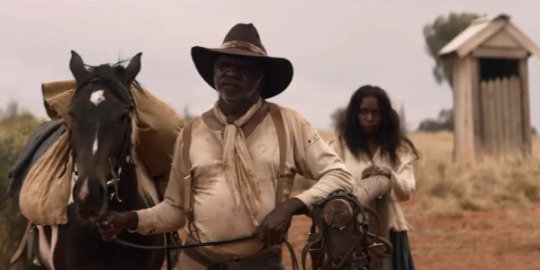
06. Sweet Country dir. Warwick Thornton
In a fairly large shift from his previous Samson and Delilah, Thornton has put together one of the best and most unusual Westerns in recent years. Featuring great, earthy performances from its nonprofessional cast (plus a bit of Sam Neill and Bryan Brown for good measure) and a weird, almost Malicky flash-forward structure, the film explores a not-widely-depicted history of exploitation of indigenous Australians. It’s a sad film, showing a fairly exciting lead-up to a somewhat deflating moment of unjust violence - but of course, many of the best Westerns aren’t about good triumphing, either. It’s the film on this list that most grew on me over the course of the year, having not impressed me at first but then blowing me away on a second viewing.
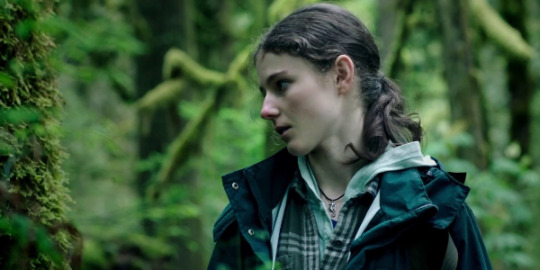
05. Leave No Trace dir. Debra Granik
For all the buzz surrounding Winter’s Bone - a film that still holds up after so many years - it’s a bit surprising that it took Granik eight years to put out a follow-up, but I guess it’s worth the wait. Unlike Bone, Leave No Trace is a kind, gentle film, leaving behind the edgy Ozarkian drama of its predecessor for a similar but more forgiving setting of woodland communities in the Pacific Northwest. It initially seduces you with Ben Foster’s outdoorsy survivalist lifestyle, cut off by seemingly uncaring state officials, but gradually revealing, through the second thoughts of his daughter (Thomasin McKenzie, in a shall we say Lawrencian turn), the downsides and flawed motivations for their lifestyle choice. It’s a quiet and thoughtful film, melancholy and optimistic in equal measure. Makes one hope Granik can get another project off the ground sooner.
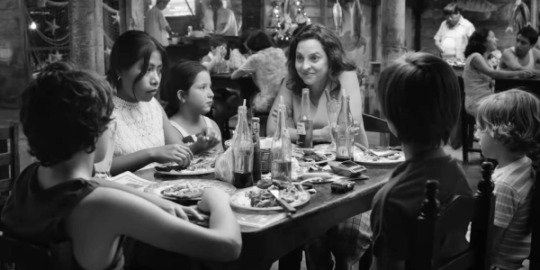
04. Roma dir. Alfonso Cuarón
I mean, what else can we say about Roma? It’s about as good as claimed, beautifully shot, framed, written, acted, whatever. It’s at its best, sort of ironically, when Cuarón breaks up the quiet personal drama for some of his characteristic action-y set pieces (a Children of Men-esque protest sequence and the climax on the beach are particularly memorable), but he also shows his talent in handling relatively uneventful family scenes, using the layout of the house to facilitate some surprisingly interesting camera movements. I’m happy that Cuarón, who could easily transition into a more boring prestige Hollywood filmmaker if he so chose, is using his industry clout to pull together neat little films like this.
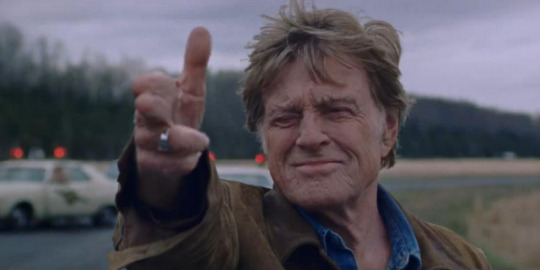
03. The Old Man & the Gun dir. David Lowery
What a completely pleasant film. A film that walks a dangerous tightrope - one of nostalgia, roguish charm, and incessant aw-shucks optimism - that can easily fall into twee, navel-gazing hell, but that miraculously pulls it off, resulting in a genuinely spirit-lifting character study of an almost folkloric figure. Robert Redford’s good in this, but of course he is - that’s the whole point. Perhaps more appropriate to say that this film is good for Robert Redford, that it rises to the occasion of celebrating his career in full and pulls it off without appearing trite or disposable. As good a (reportedly) final outing as anyone could ask for.
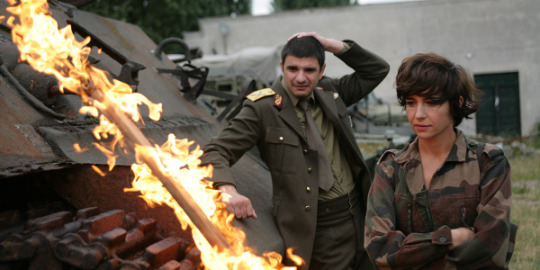
02. I Do Not Care If We Go Down in History as Barbarians dir. Radu Jude
A nearly three-hour, densely conversational, nakedly didactic examination of the historical effects and contemporary sources of fascism and ethnic nationalism that somehow flies right by. Radu Jude, a relative latecomer to Romanian cinema’s rise to international prominence, makes a strong argument for being his country’s best and most important filmmaker, taking on complicated, controversial, and infrequently discussed subject matter about Romania’s troubled past. If you can get past Barbarians’ sort of user-unfriendly exterior (Iona Iacob opens the film by introducing herself and explaining her character, which tells you the sort of thing you’re getting into), it should prove to be a remarkably stimulating and even fiendishly funny ride.
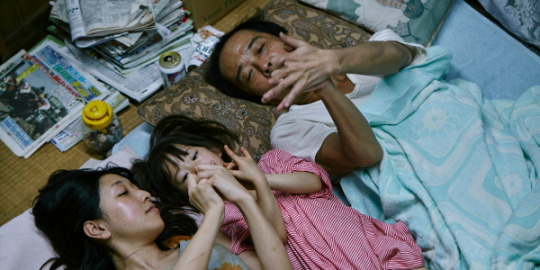
01. Shoplifters dir. Hirokazu Koreeda
If you’ve spent the ten years since Still Walking wondering what exactly Koreeda is trying to do anymore, then this is your answer. He’s spent most of the last decade pumping out the same nonconventional family drama over and over again (everything from I Wish to After the Storm, at least) so he could hone his skills like a weapon and create the perfect, ultimate version. With a pitch-perfect cast (Koreeda regulars Lily Franky and Kirin Kiki are the standouts, but Sakura Ando, Mayu Matsuoka, and the two child actors more than hold their own), and probably the perfect expression of the chosen family, spots and all, that has consumed much of Koreeda’s career, Shoplifters is one of its director’s career-best films, showcasing all of his talent for depicting delicate, intimate moments and bringing smart, complex ideas to seemingly straightforward premises. The most exciting Palme d’Or winner in years and easily the best film of 2018.
#film#best of 2018#shoplifters#roma#the old man and the gun#leave no trace#i do not care if we go down in history as barbarians#birds of passage#the favourite#sweet country#bisbee 17#asako i & ii#support the girls#mirai#first reformed#museo#blackkklansman#the green fog#sorry to bother you#spiderman into the spiderverse#minding the gap#the miseducation of cameron post#liz and the blue bird#make me up#sew the winter to my skin#good manners#mom and dad#an elephant sitting still#ready player one#unsane
4 notes
·
View notes
Text
Not all Deaths are Created Equal (Musings on WLW Deaths in Popular Media)
I want to take a sec and talk about character deaths, and the way they differ between queer and non-queer characters. Below are major spoilers for the show “The 100″ and for the game “Life is Strange.”
So! I just played through the Square Enix game Life is Strange, and I was entirely delighted in the beginning. You start as a high school senior in a cute coastal town, taking photos and solving mysteries via time travel.
Cool, right?
What’s even better is that the main two characters, Max and Chloe, are wlw. (It’s sort of left up to reader interpretation if they are bi or gay, but since Chloe at one point literally calls boys, “gross,” and says that no one but her is good enough for Max, I’m going to go ahead and say she’s a lesbian who’s still in the process of figuring that out.)
Anyway! In the first few episodes of the game, you have these sweet story about these two childhood friends reuniting and having adventures. They watch the sunset together overlooking the ocean, they walk along train tracks and reminisce about their shared childhood, they go for a midnight swim after breaking into the school pool.
These aren’t the best life choices, but the game shows a genuine and sweet relationship that develops between the two.
Aside from a lot of flirting, however, and a very brief kiss as the result of a dare, the Chloe and Max never acknowledge their feelings for each other. That is, until Chloe’s about to die. (I said major spoilers, didn’t I?)
The climax of Life is Strange involves Max and Chloe standing in front of a giant hurricane that’s about to wreck their town. Max is given the choice to either save the town, or to save Chloe. For unknown reasons, Max can’t do both.
Yes, you heard that right. Our lesbian MC either has to choose between saving her childhood best friend/long lost love, or doing what is obviously the more moral choice. How can you save a single life instead of hundreds? The “moral” choice here is meant to be obvious.
So, here’s the thing about the two endings: if you choose to save Chloe, the two of you wait out the storm, and then drive off together into the sunset. Nothing is acknowledged or talked through, including the fact that you just let everyone die.
More conspicuously, the girls never discuss their feelings for each other, and the game doesn’t end on a kiss.
Guess when the game does end on a kiss, though?
That’s right, you guessed it! When the lesbian is about to die. More specifically, when one lesbian is forced to choose between saving the love of her life, or an entire town full of people.
If Max chooses to save the town, letting Chloe die, you get a passionate kiss from Chloe (finally!) before, well, going back in time and watching her slowly bleed to death as you do nothing to stop it.
Which is bullshit.
It also brings us back to the “not all deaths are created equal” idea. I mean, ideally, the amount of dead lesbians in your story would be 0, but in a mystery story where there are multiple wlw, it’s understandable that death may be involved.
However.
However.
However.
How characters die also makes all the difference. Did they knowingly sacrifice their own life? Did they die a hero? Or were they killed off screen, probably in a brutal way, simply to further the plot?
If we’re talking Life is Strange, it’s the second one. Rachel Amber, our missing bisexual girl who started this whole mystery, is revealed to have been dead and buried since the game began (which, after giving multiple hints that she’s still alive, and can be rescued if the player makes the right choices, is a really, really shitty way to end things. But I digress.)
So we have Rachel, our first queer woman, literally buried in a shallow grave after a brutal death, before the game even begins. Then we end the game with a choice to either kill another queer woman, who the MC now loves, or to let the rest of the town die.
As a reminder, to bring this all home: Life is Strange starts out with a light and hopeful aesthetic, and does everything but come right out and say, “Rachel is still alive, and all three queer girls can reunite and be friends if you make the right choices and solve the mystery.”
Then it reveals a brutally murdered wlw, and heavily pressures you to kill another. Leaving you, the last standing lesbian, utterly alone. The last scenes of the game, if you choose to save the town, are literally of your lady love’s funeral.
Not at all depressing, right?
Bringing this back to message again, I want to underline how many different ways this could have gone:
1. Rachel Amber (our missing girl) could have been alive, and been found/rescued by the player. There is literally nothing added to the story by Rachel’s death, especially after the audience has been repeatedly baited to believe that she’s alive.
Furthermore, having Rachel (and most likely Chloe) dead removes the possibility of sequels for these wonderful characters. It means that in the new prequel series, you get to watch Chloe and Rachel fall in love...knowing all the while that Rachel is going to die before the next game.
What value does Rachel’s impending death add to the prequel game? As I said in a previous post, the LGBTQ community does not need a reminder that life is subtle and fleeting. Believe me, we know.
In a world where wlw are killed and shunned for the way we love, sometimes we just want a little escapism and a happy ending. Especially from a game that all but promised us one.
2. Second scenario: Max could have figured out a way to save Chloe without killing everyone else.
Since the rules of time travel are never established in game, it was a conscious choice on the part of the creators to allow for Chloe’s death; not a narrative inevitability.
Once again: old white cishet men decided, of their own accord, to kill the lesbian. There’s literally nothing stopping the creators from creating a way to save Chloe. At all. Besides perhaps an understanding that for LGBTQ characters, survival is a far more radical ending than death.
Question: If, as a creator, have the choice to tell literally any story, and imagine any world, why do you imagine a world where 2/3 of the queer women die?
3. Scenario three: If, for some reason you absolutely had to kill Chloe in game, you reaaaaaaaaly shouldn’t do it immediately after Max and Chloe confess their feelings for each other, and finally kiss.
From a storytelling angle, I do understand wanting to save all the Big Emotional Moments for the climax, but here’s the thing: once again, not all storylines are created equal.
For a cishet love story to end this way might be interesting, because there are a million happy cishet love stories out there. A single sad ending for a single cishet couple is a drop in the bucket compared to the massive amounts of happy stories to be easily found.
But queer love stories are few and far between, and they almost always end in tragedy. Burying your gays isn’t revolutionary; giving them happy endings is.
And if you can’t give them that, give them happy lives before they die.
In Life is Strange, Max and Chloe only ever kiss/confess their love if you make the choice to sacrifice Chloe. That’s right folks; in order to have the “happy ending” of the two characters getting together, one of them has to watch the other die.
In a world where queer relationships are tested at every turn, that’s NOT the message the LGBTQ comunity needs.
The message that finding love will only end in death? We’ve heard it. We’ve heard it from The 100, where Lexa dies literally minutes after finally consummating her relationship with the woman she’s loved and been flirting with for several seasons. (Also, she dies from a stray bullet, not in battle like she would have wanted to, as a leader of a warrior people.)
We’ve heard it from Buffy, where Tara is killed- again by a stray bullet - seconds after reuniting with the love of her life. Tara’s death scene is literally her happy reunion with Willow.
Are you seeing a pattern? In popular media, the message is, “If two women are happy together, one of them will die.”
Would these few examples be as big of an issue if there were hundreds of other examples of happy wlw in media? Of course not. But are there hundreds of other examples of happy wlw in media? Nope. Not at all.
*
To bring this all back to Life is Strange: as a wlw myself, I was delighted to play through this game, and watch two reunited friends figure out what they meant to each other.
Then, once I was entirely invested, I was crushed to realize that there was no possible happy ending. Really, the “happiest” ending possible involves a confession of true love and a kiss...immediately followed by a lesbian dying via (you guessed it!) a bullet.
*
Taken on its own, I do love Life is Strange. I’ve read several theories on the meaning behind it, and, taken in a vacuum, I can appreciate the story for what it is.
But I don’t exist in a vacuum. I exist in a world where I lost my entire support system when I came out. I live in a world where my parents disowned me and kicked me out of the house, even though I didn’t have the ability to work due to disability. And in that world? I don’t need a reminder of the fragility of life. I need a reminder that love matters, and can save the day.
tl;dr All I’m asking for is wlw who get happy endings in mainstream media. It doesn’t feel like too big of an ask, but apparently, it is.
*
As an important end note: every piece of media listed above is also severely lacking in other areas of representation, most notably when it comes to PoC. Joss Whedon’s work is well known for its racism and misogyny; The 100 has almost exclusively white MCs, and treats its characters of color atrociously, and Life is Strange barely contains any characters of color at all. All of which are unacceptable.
Additionally, none of these pieces of media contain a single trans or disabled character. White, ablebodies cis gays are the only LGBTQ characters that seem to be represented in popular media at all. Which again, is unacceptable.
So I want to acknowledge that there’s a lot more work to be done, and that the LGBTQ community should be as diverse on screen as it is in real life. LGBTQ representation absolutely has to include PoC and disabled characters to be complete.
8 notes
·
View notes